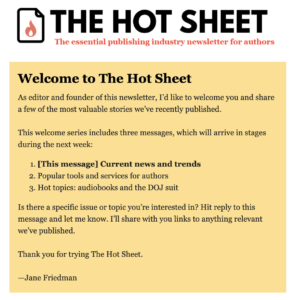Publishing Talks Interview with Jane Friedman of Hot Sheet
December 28, 2023 by David
Filed under Ebooks and Digital Publishing, Publishing History, PublishingTalks, The Future
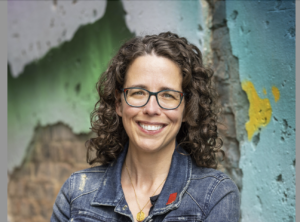 Publishing Talks began first as a series of conversations with book industry professionals and others involved in media and technology, mostly talking about the future of publishing, books, and culture. It was great fun talking with people in the book industry about the evolution of publishing in the context of technology, culture, and economics. Over the years, I talked with a variety of editors, publishers and others, innovators and leaders in independent publishing and bookselling in the past, and into the present.
Publishing Talks began first as a series of conversations with book industry professionals and others involved in media and technology, mostly talking about the future of publishing, books, and culture. It was great fun talking with people in the book industry about the evolution of publishing in the context of technology, culture, and economics. Over the years, I talked with a variety of editors, publishers and others, innovators and leaders in independent publishing and bookselling in the past, and into the present.
These conversations have been inspirational to me. I have had the pleasure of speaking with people who have influenced and changed contemporary literature and culture. I’ve also had the opportunity to speak with a number of friends and colleagues in the book business, always trying to explore and understand the complex web of books, authors and readers that is at the heart of our evolving culture.
Every year, ever more new books are published, and the “rules of the game” evolve faster than most of us can keep up. Given the pace of change in the book industry, I could not think of anyone better to learn about the latest trends and developments than Jane Friedman, whose insights and breadth of knowledge are unmatched among industry observers. I first spoke with her in 2015 and then again in 2022, and I always learn a great deal from her in every conversation we have.
Jane publishes a bi-weekly industry newsletter, a must-read for anyone involved with publishing, called The Hot Sheet. Her most recent book is The Business of Being a Writer (University of Chicago Press). Collaborating with The Authors Guild, she wrote The Authors Guild Guide to Self-Publishing. In 2023, Jane was awarded Publishing Commentator of the Year by Digital Book World.
You might also have heard of Jane because of her experience with AI book fraud, which she wrote about in August 2023. She has put together a roundup of the extensive coverage and interviews about what happened, which you can explore here.
And she publishers yet another newsletter for writers and creators called Electric Speed, which is also worthwhile subscribing to.
Her website offers a wide range of services and information for writers: “I report on the book publishing industry and help authors understand the business. I’ve been working in book publishing since the 1990s, but my views are not from the 1990s. Amidst rapid change in the industry, writers need honest and unbiased guidance to make the best decisions for their careers. I hope to offer you a signal amidst the noise.”
Jane Friedman is a very busy woman, I am truly grateful that she was able to take some time to talk to me about the latest goings on in publishing.
Writerscast began in 2008! Thanks to all who have participated and all of you who have listened to this series over the past 15 years. It’s been fun.
Podcast: Play in new window | Download
David Wilk interviews Bob Miller of Flatiron Books
October 8, 2018 by David
Filed under Publishing History, PublishingTalks
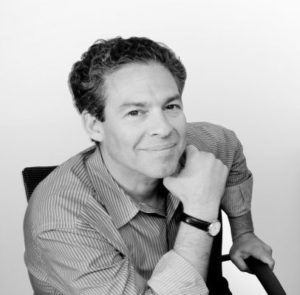 Publishing Talks began as a series of conversations with book industry professionals and people active in media and technology. At that time, some years ago, we were mostly talking about the future of publishing, books and culture, exploring what people were then thinking about the changing economics and culture of publishing and reading.
Publishing Talks began as a series of conversations with book industry professionals and people active in media and technology. At that time, some years ago, we were mostly talking about the future of publishing, books and culture, exploring what people were then thinking about the changing economics and culture of publishing and reading.
This series has expanded to go beyond the future of publishing, now engaging with the history of contemporary publishing and various other book-related subjects. I’ve talked with editors and publishers who have been innovators and leaders in a range of publishing projects, and will continue to explore the ebb and flow of writing and publishing in many forms and formats, to help document the specific cultural milieu around books, authors and publishers.
Bob Miller is currently the president and publisher of Flatiron Books, a relatively new division of Macmillan. Bob founded Hyperion for Disney in 1990 and was its president and publisher until 2008. He began his career at St. Martin’s Press and has also worked at Delacorte Press, HarperCollins, and Workman. Key titles Miller has acquired for Flatiron to date include What I Know For Sure by Oprah Winfrey, The Secret History of Twin Peaks by Mark Frost, Promise Me, Dad by Vice President Joe Biden, and in April, 2018, A Higher Loyalty by James Comey.
I thought it would be valuable to hear from Bob about his extremely successful publishing work with Flatiron and his colleagues there, and to get an understanding of what it takes to be successful in today’s commercial publishing. Bob has mastered all of the tools and strategies available to publishers, and understands better than most what it takes to continue to innovate and do well in a challenging environment. And the essential philosophy underlying the foundation of Flatiron has proved to be exceptionally strong. I hope you enjoy this conversation with Bob Miller as much as I did.
You can learn more about Flatiron Books and its current books here.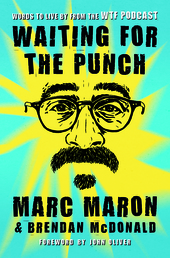
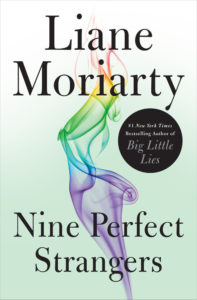
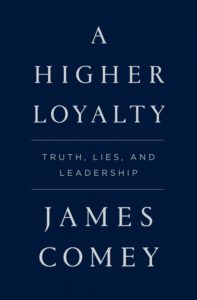
Podcast: Play in new window | Download
Publishing Talks: David Wilk interviews Cevin Bryerman
May 29, 2011 by David
Filed under Ebooks and Digital Publishing, Publishing History, PublishingTalks, Technology, The Future
 In this series of interviews, called Publishing Talks, I have been talking to book industry professionals and other smart people about the future of publishing, books, and culture. This is a period of disruption and change for all media businesses. We must wonder now, how will publishing evolve as our culture is affected by technology, climate change, population density, and the ebb and flow of civilization and economics?
In this series of interviews, called Publishing Talks, I have been talking to book industry professionals and other smart people about the future of publishing, books, and culture. This is a period of disruption and change for all media businesses. We must wonder now, how will publishing evolve as our culture is affected by technology, climate change, population density, and the ebb and flow of civilization and economics?
I hope these Publishing Talks conversations can help us understand the outlines of what is happening in the publishing industry, and how we might ourselves interact with and influence the future of publishing as it unfolds.
These interviews give people in and around the book business a chance to talk openly about ideas and concerns that are often only talked about “around the water cooler,” at industry conventions and events, and in emails between friends and they give people inside and outside the book industry a chance to hear first hand some of the most interesting and challenging thoughts, ideas and concepts being discussed by people in the book business.
Cevin Bryerman is Publisher and Vice President of Publishers Weekly, the well-known international trade magazine for book publishing. Recently Cevin spoke at Montreal’s Atwater Library and Computer Centre about the changes revolutionizing the publishing world. His message there was reported to be “fatalistic, prescriptive, dismaying, and upbeat,” which probably reflects the way a large number of publishing people feel these days.
“The digital age is definitely here,” he told an auditorium packed with book industry professionals, “and you have to embrace it.” Indeed, the revolution has not left PW untouched, and the challenge that magazine has faced in transforming itself from a traditional subscription based print trade magazine into something very different is a continuing process.
I’m hopeful that our wide ranging and hopefully provocative conversation will spur further discussions and perhaps even raise some controversy about the current condition and future prospects for all the elements of the publishing ecosystem. Publishers Weekly online here. Very interesting (though brief) history of PW in Wikipedia here.
Publishers Weekly online here. Very interesting (though brief) history of PW in Wikipedia here.
Podcast: Play in new window | Download
Publishing Talks: David Wilk interviews Mike Shatzkin
February 28, 2011 by David
Filed under Ebooks and Digital Publishing, Publishing History, PublishingTalks, Technology, The Future
 In this series of interviews, called Publishing Talks, I have been talking to book industry professionals and other smart people about the future of publishing, books, and culture. This is a period of disruption and change for all media businesses. We must wonder now, how will publishing evolve as our culture is affected by technology, climate change, population density, and the ebb and flow of civilization and economics?
In this series of interviews, called Publishing Talks, I have been talking to book industry professionals and other smart people about the future of publishing, books, and culture. This is a period of disruption and change for all media businesses. We must wonder now, how will publishing evolve as our culture is affected by technology, climate change, population density, and the ebb and flow of civilization and economics?
I hope these Publishing Talks conversations can help us understand the outlines of what is happening in the publishing industry, and how we might ourselves interact with and influence the future of publishing as it unfolds.
These interviews give people in and around the book business a chance to talk openly about ideas and concerns that are often only talked about “around the water cooler,” at industry conventions and events, and in emails between friends and they give people inside and outside the book industry a chance to hear first hand some of the most interesting and challenging thoughts, ideas and concepts being discussed by people in the book business.
Mike Shatzkin, is the founder and operator of a well known book industry consulting business called The Idea Logical Company. He’s also a blogger extraordinaire who writes incisively about issues in the book industry at The Shatzkin Files and who is never afraid to make public predictions about the future of books and the book business he knows so well, having essentially grown up in the business from an early age. He is an organizer of conferences, and a frequent speaker at publishing industry gatherings large and small.
The description of Idea Logical on its website sums up Mike’s role pretty succinctly: “The Idea Logical Company consults to book publishers and their trading partners about the changes engendered by digital transformation to every component of the value chain.” Mike has spent thirty years addressing all sorts of issues and problems for publishing and retailing clients of all sizes. In recent years, his work has focused on the changes created for the publishing industry by a variety of new and emerging digital technologies. He was an early advocate of digital publishing, and also established the concept of “verticality” or subject specific publishing as a way to organize publishing around digital technologies.
Beyond his interest and expertise in publishing, Mike is also a writer and an active entrepreneur. In this interview, we did not discuss any of his baseball related writing, editing, publishing and website development – if we had, it’s likely we would have used up all our time talking about our mutually shared passion, a subject in which Mike has also had an entire career simultaneously with his consulting work and constant thinking and analysis about books, publishers, readers and the business that serves them.
In my opinion, Mike talks just as clearly and intelligently, if not more so, than he writes, which given his writing talents, is saying alot. We certainly had a lot of fun in this conversation, which I think will be useful and interesting to anyone interested in the future of books and reading. As Mike says in his latest blog post: “Sometimes, and it would seem quite often these days, the future comes faster than you expected it.”
Podcast: Play in new window | Download
Publishing Talks: David Wilk Interviews Clint Greenleaf
January 6, 2011 by David
Filed under PublishingTalks, The Future
 In this series of interviews, called Publishing Talks, I have been talking to book industry professionals and other smart people about the future of publishing, books, and culture. This is a period of disruption and change for all media businesses. We must wonder now, how will publishing evolve as our culture is affected by technology, climate change, population density, and the ebb and flow of civilization and economics?
In this series of interviews, called Publishing Talks, I have been talking to book industry professionals and other smart people about the future of publishing, books, and culture. This is a period of disruption and change for all media businesses. We must wonder now, how will publishing evolve as our culture is affected by technology, climate change, population density, and the ebb and flow of civilization and economics?
I believe these Publishing Talks conversations can help us understand the outlines of what is happening in the publishing industry, and how we might ourselves interact with and influence the future of publishing as it unfolds.
These interviews give people in and around the book business a chance to talk openly about ideas and concerns that are often only talked about “around the water cooler,” at industry conventions and events, and in emails between friends and they give people inside and outside the book industry a chance to hear first hand some of the most interesting and challenging thoughts, ideas and concepts being discussed by people in the book business.
Clint Greenleaf began the Greenleaf Book Group after writing and publishing two books, selling foreign publication rights, and securing a multibook contract with Adams Media. Since then, he has built the company into one of the industry’s leading book distributors. Greenleaf Book Group has represented more than five hundred titles and is one of the fastest-growing companies in America. Clint speaks at conferences and seminars across the country and has been featured in the Wall Street Journal, Inc. magazine, and Entrepreneur, and he is also a contributor to Inc.com. Greenleaf has had a number of publishing and distribution successes and has become a viable alternative for many authors and independent publishers that prefer an entrepreneurial approach to publishing that provides them with more control over the publishing process than the traditional publishing model.
Greenleaf Book Group describes itself: “Our publishing model was designed to support the independent author and to make it possible for writers to retain the rights to their work and still compete with the major publishing houses. In addition to the books we publish, we distribute select titles from small and independent publishers to major trade outlets, including bookstores, libraries, and airport retailers.” Clint Greenleaf is a dynamic and intelligent business leader who brings a powerful entrepreneurial spirit and positive outlook to the publishing process. He recognizes that companies must constantly innovate in order to succeed, remain committed to doing quality work and provide significant value throughout their efforts. Greenleaf’s success is evidence that there is growing demand for alternative publishing and distribution models as the bookselling landscape continues to change.
In our discussion, we covered a wide range of topics relating to the ways that publishing and distribution are changing and Greenleaf’s past, present and future work. I think it will be a fascinating conversation for anyone interested in how publishing is evolving today.
Podcast: Play in new window | Download
Publishing Talks: David Wilk interviews Peter Brantley
September 12, 2010 by David
Filed under Ebooks and Digital Publishing, PublishingTalks, The Future
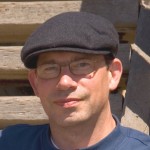 In this series of interviews, called Publishing Talks, I have been talking to book industry professionals and other smart people about the future of publishing, books, and culture. This is a period of disruption and change for all media businesses. We must wonder now, how will publishing evolve as our culture is affected by technology, climate change, population density, and the ebb and flow of civilization and economics?
In this series of interviews, called Publishing Talks, I have been talking to book industry professionals and other smart people about the future of publishing, books, and culture. This is a period of disruption and change for all media businesses. We must wonder now, how will publishing evolve as our culture is affected by technology, climate change, population density, and the ebb and flow of civilization and economics?
I hope these Publishing Talks conversations will help us understand the outlines of what is happening, and how we might ourselves interact with and influence the future of publishing as it unfolds.
These interviews give people in and around the book business a chance to talk openly about ideas and concerns that are often only talked about “around the water cooler,” at industry conventions and events, and in emails between friends and they give people inside and outside the book industry a chance to hear first hand some of the most interesting and challenging thoughts, ideas and concepts being discussed by people in the book business.
Peter Brantley is the Director of the Bookserver Project at the (totally cool) Internet Archive, a San Francisco-based not for profit library. He contributes regularly to several blogs on libraries and publishing, discussing transformations in media and information access. He serves on the board of the International Digital Publishing Forum, the standards setting body for digital books. Peter has significant experience with academic research libraries and digital library development programs, and was previously the Executive Director of the Digital Library Federation, a not for profit membership organization of research and national libraries.
As Peter pointed out to me recently, the word “rant” is a part of his name. So we could expect him to have something interesting to say about almost any subject related to books and the digital landscape. I think that comes across well in our talk. He brings to bear his experience as a librarian but also has a broad perspective on many subjects simply because he pays attention to so many ideas and developments across a wide spectrum of subject areas and interest groups. We had a lot of fun talking together, and hope listeners will enjoy our talk as well.
I am happy to say that this is the 100th post on Writerscast, a milestone of sorts, I suppose.
Podcast: Play in new window | Download
Publishing Talks: David Wilk Interviews Margo Baldwin
April 25, 2010 by David
Filed under Ebooks and Digital Publishing, Publishing History, PublishingTalks, The Future
 In this series of interviews, called Publishing Talks, I have been talking to book industry professionals about the future of publishing, books, and culture. This is a period of disruption and change for all media businesses.
In this series of interviews, called Publishing Talks, I have been talking to book industry professionals about the future of publishing, books, and culture. This is a period of disruption and change for all media businesses.
How will publishing evolve as our culture is affected by technology, climate change, population density, and the ebb and flow of civilization and its economics? Publishing Talks interviews help us understand the outlines of what is happening, and how we might ourselves interact with and influence the future of publishing as it unfolds.
These interviews give people in the book business a chance to talk openly about ideas and concerns that are often only talked about “around the water cooler,” at industry conventions and events, and in emails between friends. I believe these interviews give people inside and outside the book industry a chance to hear first hand some of the most interesting and challenging thoughts, ideas and concepts being discussed within the industry.
Margo Baldwin is the co-founder of Chelsea Green Press, an outstanding and fiercely independent publisher now based in White River Junction, Vermont. We’ve known each other a long time, and over the years, we’ve had opportunities to talk about publishing and politics on many different levels, so this interview is really a continuation of that ongoing conversation about books and ideas, and the role independent publishing can play in making real social change. Chelsea Green’s work extends far beyond the books it publishes, to blogs, websites, video, political movements, and community involvement. The company’s 2003 mission statement is a powerful – and sobering – expression of what a socially engaged publisher might be in the 21st century.
“Indeed, one begins to wonder what “living” really means or will come to mean in the opening decade of the twenty-first century. Can anything be deemed sustainable when life itself–in all its myriad forms–is threatened at so many levels? Is it enough to focus on the how-to of ‘green living’ in the face of such overwhelming force, the ‘shock and awe’ of forest and ecosystem destruction, the rampant plundering of the world’s oceans, the terror of GMO-contaminated-food, and the unintended consequences of biotechnology? We wish to move the company forward boldly and with a new sense of urgency. While continuing our commitment to remain at the forefront of information about green building, organic growing, and renewable energy – the practical aspects of sustainability – we will also publish for a new politics of sustainability, for the cultural resistance that living demands of us now.”
In our Publishing Talks conversation, Margo talks about the history of Chelsea Green, where it is today, and where her vision of publishing will lead the company in the future as it tries to carry out its bold and important mission. The recently announced partnership between Chelsea Green and Vermont’s Northshire Books is a great example of the creative thinking that Margo and her company are practicing.
Podcast: Play in new window | Download
Publishing Talks: David Wilk Interviews Don Linn
March 23, 2010 by David
Filed under Ebooks and Digital Publishing, PublishingTalks
 In this series of interviews, called Publishing Talks, I have been talking to book industry professionals, each of whom has a different perspective about the future of publishing, books, and culture. This is a period of disruption and change for all media businesses.
Publishing has been a crucial part of human culture for as long as people have been writing and reading.
In this series of interviews, called Publishing Talks, I have been talking to book industry professionals, each of whom has a different perspective about the future of publishing, books, and culture. This is a period of disruption and change for all media businesses.
Publishing has been a crucial part of human culture for as long as people have been writing and reading.
How will publishing evolve as our culture is affected by technology, climate change, population density, and the ebb and flow of civilization and its economics? Publishing Talks interviews help us understand the outlines of what is happening, and how we might ourselves interact with and influence the future of publishing as it unfolds. Publishing Talks interviews give people in the book business a chance to talk about ideas and concerns in a public forum that are often only talked about “around the water cooler,” at industry conventions and events, and in emails between friends.
I believe that these interviews give people inside and outside the book industry a chance to hear first hand some of the most interesting and challenging thoughts, ideas and concepts that are currently being discussed within the industry.
I’ve know Don Linn for a number of years, dating back to when he took over the then beleaguered Consortium Book Sales & Distribution, the very excellent but financially challenged distributor of independent literary publishers based in St. Paul, Minnesota. At that point Don took on the very tough job of running a stand-alone book distribution business at a time of great flux in the book business, and did a very fine job of it, by all accounts, finally selling Consortium to the much larger Perseus Books, where it and its many outstanding publisher clients have found safe haven. Don later went on to be publisher at Taunton Books in Newtown, Connecticut, and now has joined the ranks of the independent publishing professional. He’s blogging too, his Mississippi roots showing, at Bait ‘n’ Beer which is both entertaining and edifying.
Here’s his current bio: “Don has a sordid past as an investment banker, cotton and catfish farmer, book distributor, publisher, entrepreneur and general ne’er-do-well. He’s a graduate of Harvard Business School and Vanderbilt University and is endlessly fascinated by books and publishing and their collision with technology. Among other things.”
Don’s intelligence and wit are on display in our talk. His business background and love of books, publishing and the people in the business provide him with a really interesting perspective, and it’s clear he has been thinking hard about the book business and where it is going. He wrote a terrific report on the recent O’Reilly Tools of Change that attracted my attention, and led to this conversation about where publishing is headed in the emerging digital distribution environment. I think his views and opinions will be valuable to publishers of all sizes.
Podcast: Play in new window | Download
Publishing Talks: David Wilk interviews Richard Curtis
February 11, 2010 by David
Filed under PublishingTalks

In this series of interviews, called Publishing Talks, I am talking to book industry professionals who have varying perspectives and thoughts about the future of publishing, books, and culture. This is a period of disruption and change for all media businesses.
Publishing has been a crucial part of human culture for as long as people have been writing and reading.
How will publishing evolve as our culture is affected by technology, climate change, population density, and the ebb and flow of civilization and its economics? Publishing Talks interviews help us understand the outlines of what is happening, and how we might ourselves interact with and influence the future of publishing as it unfolds. Publishing Talks interviews give people in the book business a chance to talk about ideas and concerns in a public forum that are often only talked about “around the water cooler,” at industry conventions and events, and in emails between friends.
I hope that Publishing Talks interviews will give people inside and outside the book industry a chance to hear about some of the thoughts, ideas and concepts that are currently being discussed by engaged individuals within the industry.
Richard Curtis, president of Richard Curtis Associates, Inc., is a leading New York literary agent and a well-known author advocate. He is also the author of numerous works of fiction and nonfiction including several books about the publishing industry. His interest in emerging media and technology has enabled him to help authors anticipate trends in publishing and multimedia. He has lectured extensively and conducted panels and seminars devoted to raising consciousness in the author and agent community about the future of communications. He was the first president of the Independent Literary Agents Association and subsequently president of ILAA’s successor organization, the Association of Authors’ Representatives (AAR) He blogs regularly on www.ereads.com. He is also, uniquely among literary agents, a publisher himself, having founded the innovative digital publishing imprint, E-Reads almost ten years ago.
I have known Richard for a very long time, have done business with him, and collaborated with him on an experimental publishing project a few years ago, But mostly, over the years, Richard and I have talked about the book business, the future of publishing and of authors, and particularly, the future of digital publishing. So it made a lot of sense for me to talk to Richard as part of the Publishing Talks series, as I knew he would have a great deal of interesting and compelling ideas to share about these subjects, which he almost always does.
Podcast: Play in new window | Download
Publishing Talks: David Wilk Interviews David Rothman
January 26, 2010 by David
Filed under PublishingTalks
 In this series of interviews, called Publishing Talks, I am talking to book industry professionals who have varying perspectives and thoughts about the future of publishing, books, and culture. This is a period of disruption and change for all media businesses.
In this series of interviews, called Publishing Talks, I am talking to book industry professionals who have varying perspectives and thoughts about the future of publishing, books, and culture. This is a period of disruption and change for all media businesses.
Publishing has been a crucial part of human culture for as long as people have been writing and reading.
How will publishing evolve as our culture is affected by technology, climate change, population density, and the ebb and flow of civilization and its economics? Publishing Talks interviews help us understand the outlines of what is happening, and how we might ourselves interact with and influence the future of publishing as it unfolds. Publishing Talks interviews give people in the book business a chance to talk about ideas and concerns in a public forum that are often only talked about “around the water cooler,” at industry conventions and events, and in emails between friends.
I hope that Publishing Talks interviews will give people inside and outside the book industry a chance to hear about some of the thoughts, ideas and concepts that are currently being discussed by engaged individuals within the industry.
David Rothman grew up in the D.C. area, went to the University of North Carolina and worked as a reporter for the Journal in Lorain, Ohio, where he covered poverty and public housing and was a feature writer. Among other stories, Rothman chronicled the aftermath of the Kent State massacre.
Related distantly to the late Hollywood scriptwriter Arnold Belgard, Rothman is the author of six nonfiction books on technology-related topics and lives with his wife, Carly, in Alexandria, Virginia. He is well known on the Internet and among digerati for having created and operated TeleRead, a popular site devoted to libraries and technology and recently has published a novel based on real-life Washington, D.C., The Solomon Scandals.
I talked with David Rothman about his long history of involvement in technology, the internet and digital reading alternatives, with emphasis on Teleread, and we then moved on to cover some of the current issues of the day, including the business structure of the rapidly growing e-publishing marketplace, copyright issues in the digital era, and how the web might enable new compensation models for authors and other creators. David displayed his typical verve and journalist’s willingness to tackle any subject and every challenge.
Podcast: Play in new window | Download

